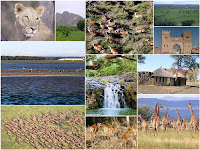According to British Petroleum's CEO

BP's chief executive, Tony Hayward , has said the Gulf of Mexico oil disaster should not mean the end of deep-water exploration. He told the BBC : " I don't believe it should [result in a ban], in the same way as Apollo 13 did not stop the space programme nor have serious airline accidents from time to time stopped people flying. " His thinking is just like that of the many oil executives and dealers: they only think in terms of figures and profits. Above photo from: Rocky Mountains Review For Mr. Hayward to compare the Apollo 13 and past air disasters to the current massive and very damaging oil spill off the Gulf of Mexico, is an insult and a complete lack of responsibility. The Apollo 13 disaster and past air plane crushes were in no way as destructive, perilous, costly and with such damaging long term effect, as the present oil spill is. BP's oil spill is destroying lives and livelihood; does Mr. Hayward know how many dolphins, turtles and other forms of ...

